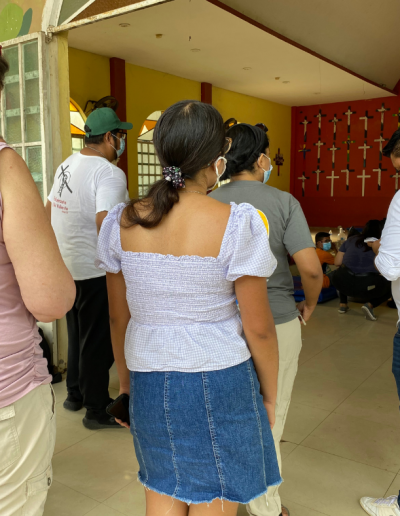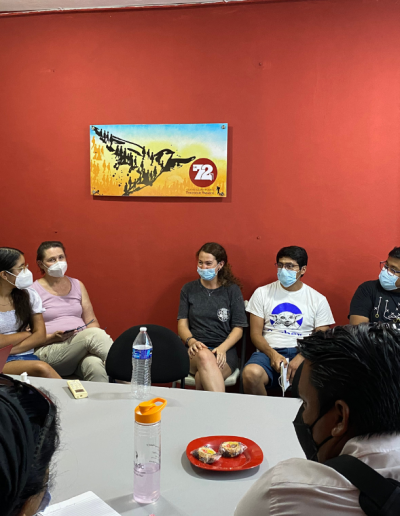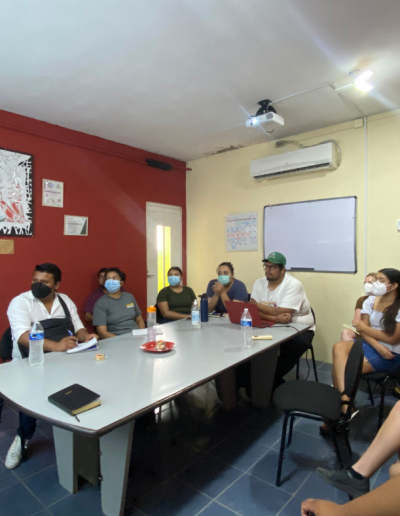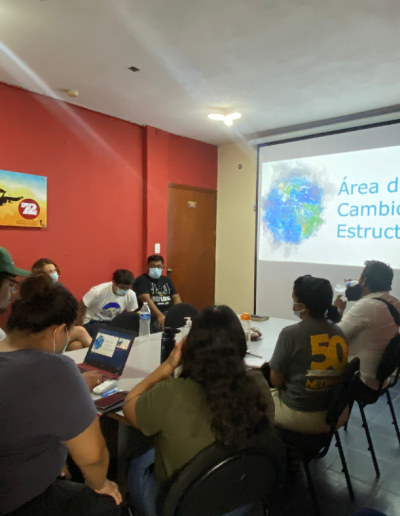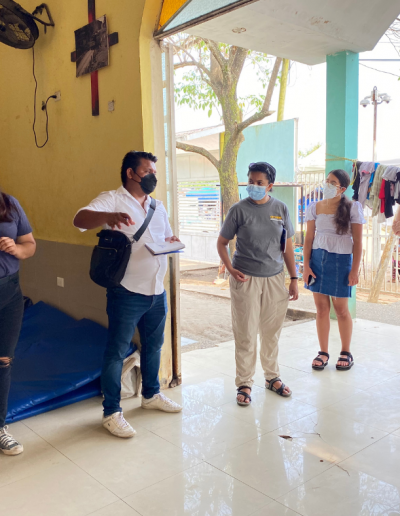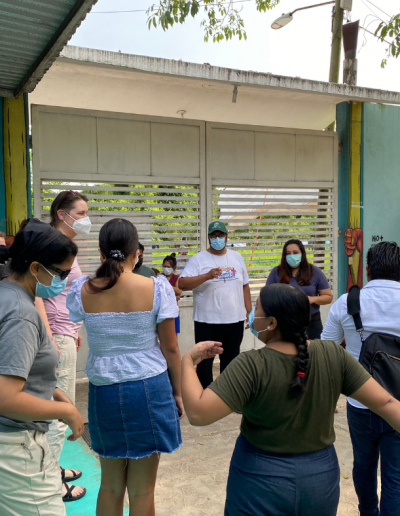June 6
La 72, Hogar – Migrant and Refugee Shelter, Tenosique, Tabasco, Mexico
Members of the Quixote Center and the Franciscan Network for Migrants arrived at the facilities of La 72. The visit began with a tour of the house, where they showed us the various sectors and provided a detailed and informative discussion on the history of the house and the services provided. The director, Fr. Gabriel Romero, explained through a presentation the migratory context on the Tenosique-Guatemala border, as well as the risks that migrants face with the Mexican authorities and the strong migratory policy imposed during this six-year term.
Janery Hernández, a social worker with Ayuda en Acción-Mexico who coordinates the specialized work with vulnerable group, provided information on the population of women survivors of gender-based violence, unaccompanied children and adolescents, the elderly and the LGBTQ+ community.
José del Carmen Barjau, coordinator of Human Rights and Migration Management, detailed the procedure that people must follow to initiate their refugee status application process in Mexico. He also discussed how La 72 has allied itself with shelters in Guatemala to provide information on the procedures and ways to defend their rights before the National Migration Institute of Mexico.
The Structural Change area, coordinated by Alejandra Conde, is responsible for influencing the local population of the municipality and the communities of the La Palma-Tenosique and El Ceibo-Tenosique routes. Their regular visits to host communities and support of community advocates helps sensitize people to extend their hand and support with a glass of water, a plate of food or a space to rest and with information on immigration laws to protect their rights. both of the migrant brothers and sisters and of the defenders.
Fernando Canché, coordinator of Humanitarian Assistance, explained how the house is run, with the help of users, work areas, volunteers and the support of international organizations. The house rules that are so important to maintain order, opening hours and general assistance: provide food three times a day, personal hygiene, clothing, a space to rest, basic medical and psychological care.
Finally, we heard from Jesús Balán, who coordinates grantwriting and grants management, Vianey Martínez, who heads up communications. They explained that they focus on institutional support for the entire shelter. The activities, links and actions that they carry out seek to improve performance in all areas of work and to increase visibility for the work with migrants.
Thanks to Janery’s help with planning the visit, Quixote Center and the entourage met with the migrant population during lunch and at a meeting with a migrant family from Honduras.
The Franciscan Network for Migrants appreciates the support and constant collaboration of Quixote Center to our organization. This visit was the first and we are in the dialogue to plan more to the southern border of Mexico. We also thank the houses for migrants who received us despite their commitments. We admire the hard work they do every day to seek the defense of the human rights of migrants. It doesn’t matter if we are from different religions or secular, we are always willing to collaborate for our brothers and sisters. We hope to meet again soon!


